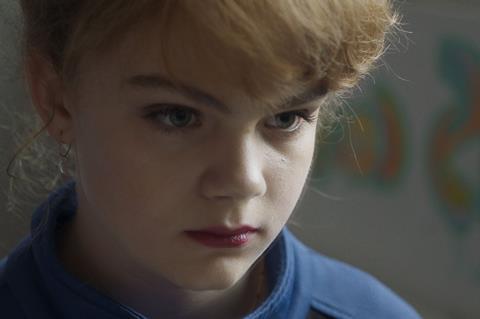
Films by Emmanuelle Nicot, Lucas Dhont and Michal Blasko were among the winners at the 30th edition of Filmfest Hamburg which came to a close on Saturday evening with the German premiere screening of Moroccan-born director Maryam Touzan’s The Blue Caftan.
In the awards ceremony before the closing film, the €5,000 NDR young talent award, sponsored by local public broadcaster NDR, went to French director Nicot’s debut feature Love According To Dalva which had premiered in Cannes’ Critics’ Week earlier this year.
The film, about a 12-year-old child who has been groomed and programmed by her paedophile father, will be released theatrically in Germany by A2B Entertainment. It was one of the films selected for the festival’s new venture #Atelier22 which initiated a dialogue between three international debutants and 16 students from eight German film schools. mK2 is handling internationally.
The CICAE’s Art Cinema award went to Belgian filmmaker Lucas Dhont’s second feature Close which has been selected as Belgium’s official entry for the 2023 Oscars. The €5,000 prize money was provided by Hamburg’s local film fund MOIN to be spent on the film’s PR campaign by German distributor Pandora Film which will release the film on February 2, 2023.
Cristian Mungiu’s R.M.N. took home the Critics’ Choice award, presented in cooperation with the Association of German Film Critics, and the Friedrich Ebert Foundation’s prize for socially engaged cinema went to Daniel Goldhaber’s How To Blow Up A Pipeline which had screened in Filmfest’s Veto! sidebar.
Amerikatsi by Michael Goorjian, a US actor, director and writer of Armenian descent, was voted the winner of the Filmfest Hamburg Audience Award, which was sponsored by the Hapag Lloyd Foundation for the first time this year.
Seidl screening
Festival director Albert Wiederspiel reported the Filmfest had garnered 41,500 visitors, 7.8% less than the total number of admissions for 2019.
Controversial Austrian filmmaker Ulrich Seidl attended a public screening of his feature Sparta. Filmfest organisers said Seidl took questions about the film from a moderator rather than from members of the audience.
A report in Hamburg-based news magazine Der Spiegel in early September alleged child actors in Sparta were insufficiently protected on set; in particular that the filmmaker did not tell the youngsters or their guardians of the film’s themes before they were exposed to nudity, alcoholism and violence.
Seidl has denied the claims and his lawyers have said no children were filmed naked or exposed to potential harm.
The Toronto film festival withdrew its invitation of a world premiere and Seidl did not travel to San Sebastian for what was then the film’s world premiere.
Filmfest Hamburg opted to continue to screen the film as part of the Kaleidoskop section, as a diptych with Rimini, Seidl’s first film of 2022, that debuted at the Berlinale in February. But organisers decided not to present Seidl with this year’s Douglas Sirk Award before the screening of Sparta as the controversy would have overshadowed the awards ceremony.
However organisers indicated the Douglas Sirk Award will still be presented to Seidl - when his next film has its German premiere in Hamburg.
























No comments yet